Medical articles
How to Stop Hair Fall Naturally
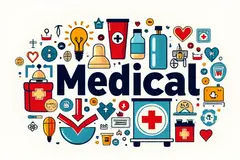 Falling of Hair: Comprehensive Guide to Prevention and Treatment
Hair fall is a common concern that affects millions of people worldwide. Whether it's due to genetics, stress, or poor diet, finding natural ways to prevent hair loss and promote regrowth can significantly boost your confidence and overall well-being.
To stop hair fall naturally, consider... read more...
Falling of Hair: Comprehensive Guide to Prevention and Treatment
Hair fall is a common concern that affects millions of people worldwide. Whether it's due to genetics, stress, or poor diet, finding natural ways to prevent hair loss and promote regrowth can significantly boost your confidence and overall well-being.
To stop hair fall naturally, consider... read more...
When should I see a doctor for a headache?
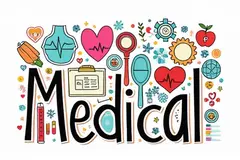 Severe Headache? Time to See a Doctor
Headaches can vary widely in severity and cause. A severe headache that comes on suddenly, especially if it's the worst you've ever experienced, is often an indicator of a serious condition requiring immediate medical attention.
Sudden onset: If your headache starts abruptly and feels extremely intense from the... read more...
Severe Headache? Time to See a Doctor
Headaches can vary widely in severity and cause. A severe headache that comes on suddenly, especially if it's the worst you've ever experienced, is often an indicator of a serious condition requiring immediate medical attention.
Sudden onset: If your headache starts abruptly and feels extremely intense from the... read more...
What is cataract surgery?
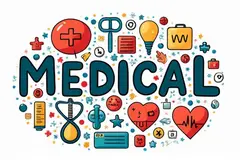 Understanding Cataract Removal
A cataract is a clouding of the natural lens inside the eye that causes blurred vision. This condition typically develops slowly over time and can significantly impact daily activities such as reading, driving, or even recognizing faces. The primary goal of cataract surgery is to remove this cloudy lens and replace it with an... read more...
Understanding Cataract Removal
A cataract is a clouding of the natural lens inside the eye that causes blurred vision. This condition typically develops slowly over time and can significantly impact daily activities such as reading, driving, or even recognizing faces. The primary goal of cataract surgery is to remove this cloudy lens and replace it with an... read more...
How does exercise improve mental health and well-being?
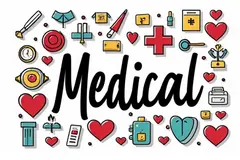 Exercise is widely recognized for its physical benefits, but it also plays a crucial role in enhancing mental health and overall well-being. Engaging in regular physical activity can boost mood, reduce stress, alleviate anxiety, and even improve cognitive function. This article delves into the myriad ways exercise positively impacts mental health.
Exercise's... read more...
Exercise is widely recognized for its physical benefits, but it also plays a crucial role in enhancing mental health and overall well-being. Engaging in regular physical activity can boost mood, reduce stress, alleviate anxiety, and even improve cognitive function. This article delves into the myriad ways exercise positively impacts mental health.
Exercise's... read more...
How do antibiotics affect gut bacteria?
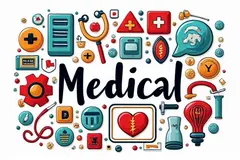 Antibiotics are essential for treating bacterial infections, but their impact on gut health is a growing concern. This article delves into the intricate relationship between antibiotics and gut bacteria, exploring how these medications can alter your digestive system's delicate balance.
How Antibiotics Alter Gut Health
The human gut harbors trillions of... read more...
Antibiotics are essential for treating bacterial infections, but their impact on gut health is a growing concern. This article delves into the intricate relationship between antibiotics and gut bacteria, exploring how these medications can alter your digestive system's delicate balance.
How Antibiotics Alter Gut Health
The human gut harbors trillions of... read more...
Why do we get kidney stones?
 What Really Leads to Kidney Stones?
Kidney stones are hard deposits that form in the kidneys when substances such as calcium, oxalate, and uric acid become concentrated enough to crystallize. These stones can cause severe pain and complications if they block urine flow or move into the ureter.
Decoding the Causes of Kidney Stones
The formation of kidney... read more...
What Really Leads to Kidney Stones?
Kidney stones are hard deposits that form in the kidneys when substances such as calcium, oxalate, and uric acid become concentrated enough to crystallize. These stones can cause severe pain and complications if they block urine flow or move into the ureter.
Decoding the Causes of Kidney Stones
The formation of kidney... read more...
Is it normal for allergies to worsen with age?
 Do Allergies Get Worse With Age?
Many individuals experience a change in their allergy symptoms as they age, leading to questions about whether allergies worsen over time. It's common for people to notice that their seasonal or chronic allergies seem more severe later in life. This article explores the relationship between aging and allergies, addressing... read more...
Do Allergies Get Worse With Age?
Many individuals experience a change in their allergy symptoms as they age, leading to questions about whether allergies worsen over time. It's common for people to notice that their seasonal or chronic allergies seem more severe later in life. This article explores the relationship between aging and allergies, addressing... read more...
What is blood test?
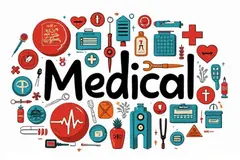 Understanding Blood Tests: What Do They Reveal?
Blood tests are a fundamental aspect of medical diagnostics, providing critical insights into your overall health and wellness. These tests can detect various conditions ranging from infections to chronic diseases, making them an essential tool for preventive healthcare.
Decoding Your Blood Work Results
When... read more...
Understanding Blood Tests: What Do They Reveal?
Blood tests are a fundamental aspect of medical diagnostics, providing critical insights into your overall health and wellness. These tests can detect various conditions ranging from infections to chronic diseases, making them an essential tool for preventive healthcare.
Decoding Your Blood Work Results
When... read more...
What causes asthma?
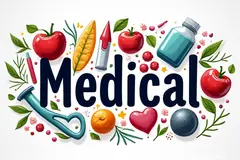 Asthma is a chronic respiratory condition that affects millions of people worldwide. Understanding what causes asthma and its triggers can help individuals manage their symptoms more effectively, leading to improved quality of life.
What Triggers Asthma Attacks?
Asthma attacks are often triggered by specific factors that cause inflammation in the airways.... read more...
Asthma is a chronic respiratory condition that affects millions of people worldwide. Understanding what causes asthma and its triggers can help individuals manage their symptoms more effectively, leading to improved quality of life.
What Triggers Asthma Attacks?
Asthma attacks are often triggered by specific factors that cause inflammation in the airways.... read more...
Can people with type 1 diabetes use insulin pumps?
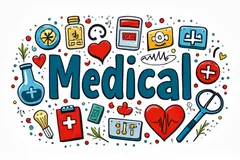 Type 1 diabetes is a chronic condition that requires careful management to maintain blood glucose levels within a healthy range. One of the most significant advancements in managing type 1 diabetes has been the development and widespread use of insulin pumps. These devices offer a more precise and flexible way to deliver insulin compared to traditional... read more...
Type 1 diabetes is a chronic condition that requires careful management to maintain blood glucose levels within a healthy range. One of the most significant advancements in managing type 1 diabetes has been the development and widespread use of insulin pumps. These devices offer a more precise and flexible way to deliver insulin compared to traditional... read more...
What is the difference between an X-ray and an MRI?
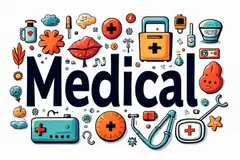 X-Ray vs MRI: What's the Difference?
When it comes to medical diagnostics, two of the most commonly used imaging techniques are X-rays and MRIs (Magnetic Resonance Imaging). While both serve crucial roles in diagnosing various health conditions, they operate on different principles and offer distinct advantages. This article aims to elucidate these... read more...
X-Ray vs MRI: What's the Difference?
When it comes to medical diagnostics, two of the most commonly used imaging techniques are X-rays and MRIs (Magnetic Resonance Imaging). While both serve crucial roles in diagnosing various health conditions, they operate on different principles and offer distinct advantages. This article aims to elucidate these... read more...
Understanding Epilepsy Symptoms
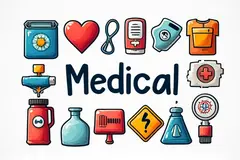 Epilepsy: Understanding Symptoms and Managing the Condition
Epilepsy is a neurological disorder characterized by recurrent seizures. It affects millions of people worldwide, making it crucial to understand its symptoms, diagnosis process, treatment options, and coping strategies. This article aims to provide comprehensive information on epilepsy, helping... read more...
Epilepsy: Understanding Symptoms and Managing the Condition
Epilepsy is a neurological disorder characterized by recurrent seizures. It affects millions of people worldwide, making it crucial to understand its symptoms, diagnosis process, treatment options, and coping strategies. This article aims to provide comprehensive information on epilepsy, helping... read more...